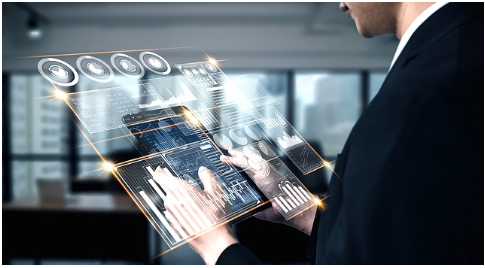The Rise of AI: How Artificial Intelligence is Transforming Everyday Life
AI now forms a reality of constantly seen abstract in our day to day existence and can be viewed as the future of innovation. Even with mundane tasks such as shopping or managing homes through voice-activated assistants to complex tasks like getting movie recommendations based on your past history, AI is slowly integrating itself in to every facet of modern existence and making it easier.
The Communication and Connectivity Role of AI
Another area that has probably reflected the most drastic integration of AI is communication. Siri, Alexa, Google Assistances, etc all facilitate by natural language processing (NLP) to respond the command made by humans for various tasks such as scheduling, buying products, and controlling smart devices. On the same note, AI algorithms are improving connection, enabling smart typing, translation and screening of spam messages.
Not surprisingly, these technological innovations have also thrived in relatively unconventional sectors such as entertainment services. For instance, the NFLBite tool has gained popularity due to streaming of sports content. Some of these platforms incorporated artificial intelligent recommendations whether in proposing games that the users might like enhancing the view of the clients.
AI in Healthcare
When it comes to the Applied Sciences the Health Care sector has been developing revolutionary AI. Diseases are being predicted by means of predictive analytics and by utilizing the power of machine learning; it can comprise of cancer or Alzheimer’s disease. Common example is the analysis of medical images, AI can do these with less error as compared to human.
Also, more and more surgeries are done with the help of robots due to the high level of accuracy that is achievable. Wearable devices are smartwatches powered by Artificial Intelligence that captures and records important health statistics and notifies the user or the doctors when these health markers prove dangerous to the user’s life.
AI in Education
These fields include the following; Education is one of the fields that is being transformed by AI. Intelligent tutoring systems (ITS) are continuing with the process of individualizing instruction so that the student receives what he may require at that particular level and speed. These systems take into account the various learning techniques, thus none of the students is left behind.
AI incorporated VR and AR are making classroom come alive by providing rich and engaging learning experiences. This not only makes learning more interactive, but it also helps to give the participants real life experience of ideas which before could only be read in books.
AI in Entertainment as well as Gaming
The entertainment and gaming sectors have adopted AI in the generation of experience. Popular online services such as Netflix or Spotify incorporate AI in order to recommend films, programs or songs that should match the user’s preferences. In gaming, AI makes NPCs be much more realistic and add up to a good experience.
The NFL Bite is a prime example of streaming services for sports which use AI to make recommendations or provide timely updates on highlight reels along with providing feeds tailored to the choice of the fans. Growing the usage of AI, these platforms maintain the audience’s interest while also guaranteeing smooth content distribution.
AI in Transportation
AI has brought a shift in transformation in the transportation industry. Self-driving automobiles are navigating, identifying the obstacles and making decisions for itself using AI, which is in production by companies such as Tesla. Transportation is also not left behind owing to the usage of AI where it applies the use of predictive maintenance to safety and reliability of the systems used.
Uber or Lyft, the most popular ride-sharing companies heavily depend on AI technologies for mapping, driver-passenger searching, or considering surge prices. These developments help not only the clients to get a more enjoyable experience, but also provide an overall operational boost.
This paper delves into the Ethical Concerns of using Artificial Intelligence.
Nonetheless, the adoption of AI has implications of ethics as pointed out next. There is need to talk about data privacy, issues to do with algorithm biases, and the losses likely to emanate from loss of employment. AI is not immune to misuse and thus it is incumbent upon governments, organizations, and developers to embrace formulation of good policies which will address the right way of developing AI.
The Future of AI in Everyday Life
The future development of AI will lead to an even more incorporative presence of the technology in consumers’ lives. Specifically, such innovative fields as smart cities based on artificial intelligence, advanced robotics, and such a breakthrough area as personalized medicine indicate the trends for the society’s evolution. But achieving balance between the audacious implementation of AI and solutions that are still moral will be the important issues to consider so that AI work for the good of all humanity.
AI has already been applied to many spheres and activities of people’s lives, including social interactions, treatment, leisure, and mobility. But realizing this technology must not come with disregard for the negatives that are inherent with the availability and use of such means: as a society we need to come together to ensure that such technology is well utilized.



0 Comment